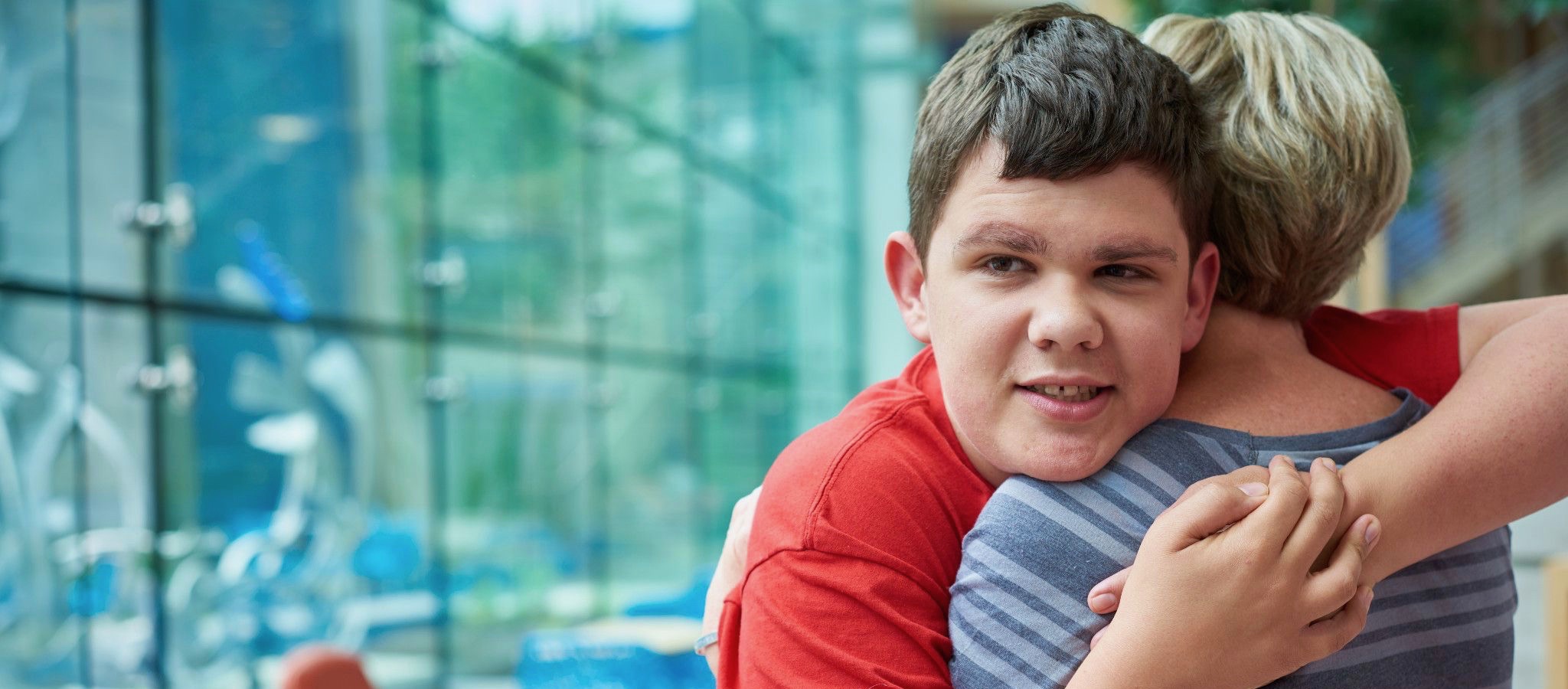Chances are, you or your child knows someone with autism. In fact, about one in 44 children have autism, and it occurs four times more frequently in boys than girls. Whether your child is meeting someone with autism for the first time, or they’ve been friends for a while, they may have questions.
And asking questions is okay – as a matter of fact, it should be encouraged! This is how children learn about and celebrate differences.
Autism Spectrum Disorder describes developmental differences related to communication, learning, play, and social engagement. We call this neurodiversity. As a pediatric psychologist working with children and adolescents with autism, I know that some parents wonder how to talk about this with their kids. Here are a few tips to guide those conversations:
Tips for Talking about Autism Spectrum Disorder with Your Kids
-
Saying something is better than saying nothing
As parents, we feel pressure to explain it right. We don’t want to say the wrong thing or hurt someone’s feelings. We want our kids to be empathetic and be a good friend. By acknowledging someone’s differences in a respectful way, rather than shying away from them, we can celebrate our differences. Because differences should be celebrated! This is how we learn new things and open our minds to new ideas. Encourage your children to keep asking questions.
-
Acknowledge what they see
What you explain will likely depend on where the conversation starts. If you’re out in public and your child sees a boy and his mom laughing– perhaps he’s flapping his arms and making noises – your child may ask why he’s doing that. I encourage you to answer the question, rather than shushing it or ignoring it. Acknowledge what’s happening. It looks like the boy is feeling happy. He may be flapping his arms because he’s excited. You get excited, too; you just react differently.
-
Explain autism in plain language
Kids with autism might experience the world differently, including the way they learn, play, communicate, and express emotions. Kids with autism have strengths and challenges just like all kids. And no two kids with autism are the same. Watching this video can help get you started.
-
Talk more in-depth about strengths and challenges
Encourage your child to identify their own strengths and challenges. If there’s someone they know with autism, such as a classmate, encourage them to talk about their classmate’s strengths and challenges too. Such as, David is always the first to volunteer to help our teacher, or David is really good at telling jokes. They’ll start to realize that everyone has strengths. Everyone has difficulties too. Some of us need extra help in school. Some of us need more time for breaks than others.
-
Model empathetic language
As you’re having conversations about autism, allow your kids to ask questions, and model empathetic language. For instance, if your child asks why David was acting weird in school, get more information about what happened and then reframe it. Say something like, it sounds like what you saw was David getting upset at lunch. He covered his ears and may have felt overwhelmed. He acted differently than you do when you get upset. That’s okay. Next time maybe give him some space and then check in on him. Brainstorm ways to support classmates and be a helpful friend.
-
Explain the importance of friendship
I think there is a misconception that some kids with autism aren’t interested in having friends because sometimes they prefer to play by themselves. Some kids with autism do prefer to play by themselves, but this doesn’t mean they want to play by themselves all of the time. All children benefit from having friendships and learning from others. Children with autism may show an interest in developing friendships in a different way. Encourage your child to ask their friend how he likes to play or about his favorite toys and games. If feasible, talk with David’s parents at the next play date to learn about his interests or the ways he likes to play. This can help strengthen friendships and connections.
-
Continue learning about autism
There are some great resources out there to continue learning about autism. If your child is younger, think about incorporating shows that promote neurodiversity. For example, Sesame Street and Daniel Tiger both have characters with autism. Here are some books I recommend:
- All My Stripes: A Story for Children with Autism by Shaina Rudolph and Danielle Royer
- We’re Amazing 1, 2, 3! A Story about Friendship and Autism by Leslie Kimmelman
- My Brother Charlie by Holly Robinson Peete
- A Friend like Simon by Kate Gaynor
- The Autism Acceptance Book by Ellen Sabin
- Uniquely Wired: A Story about Autism and its Gifts by Julia Cook
The bottom line is that neurodiversity should be celebrated! Everyone learns and thinks differently – they always have.



Thank you for the article and especially your chosen field of study. As a mother of a teenage boy with autism this hit home. My son longs for friends his own age.